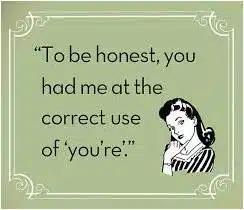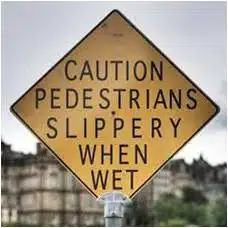Whether it’s your cover letter, your résumé, your latest post on your LinkedIn profile or an email to someone helpful, first impressions count and you don’t want that first impression to be your last impression.
With the busyness of business, we have all seen mistakes that many writers could have avoided had they done a better job in proofreading their work before posting or sending it.
Here are some helpful insights and guidelines on clear communication and first impressions.
Incorrect Grammar Makes A Poor First Impression
Whenever you have grammatical errors in a document, such as your CV or your LinkedIn profile, then a Recruiter or Hiring Manager is more likely to perceive you as being less precise than the job seeker who proofreads more exactly.
And, if your business’s marketing materials have grammatical mistakes in them, then clients and prospects might perceive these errors as an indication that your company’s service is sloppy or unreliable.
Common Grammar Mistakes

* Combination of at least two complete thoughts without the proper punctuation between clauses:
“What is this thing called, love?” (With thanks to Benny Hill.)
Clearly in this case, the comma is everything. It has a very different meaning to “What is this thing, called love?”
* Sentences with an unclear antecedent:
“Emma told her Mum her stocking had a ladder in it.”
Whose stocking has a hole? Mum’s or Emma’s?
* Confusing apostrophes that indicate possession with apostrophes that indicate omitted letters:
Susan’s vs Didn’t. Here, Susan’s is possessive; whereas Didn’t is a shortened form of did not.
* Having two negatives in one sentence to indicate the opposite of what you actually mean:
“I shouldn’t care what people don’t think.” This is inherently confusing to the listener. Better to say, “I don’t care what people think.”
* Overuse of preposition phrases:
“Without a doubt”; “on occasion”; “since the beginning”.
Improving Your Grammar Resources
There are some really helpful online resources to improve grammar:
- YourDictionary has grammar rules and usage tips.
- Write 101 offers a comprehensive collection of over 800 articles devoted to helping you improve your writing.
- Daily Grammar offers free e-mail grammar lessons Monday through Friday, with a quiz to test your skills on Saturday. The site also features a searchable archive of previous grammar lessons and quizzes.
- Grammarly on Facebook, has a daily feed of amusing tips and helpful tidbits.
What Is The Cost of Bad Grammar?

What was the clause? It read:
The agreement “shall continue in force for a period of five years from the date it is made, and thereafter for successive five year terms, unless and until terminated by one year prior notice in writing by either party.”

So?
While it might seem a bit old school, take time out to re-read your work before submitting it. This applies to your cover letter; your résumé; your new social media post; your LinkedIn profile update; or when you are sending an email.
First impressions count and you don’t want that first impression to be your last impression.
* * * * * * * *


